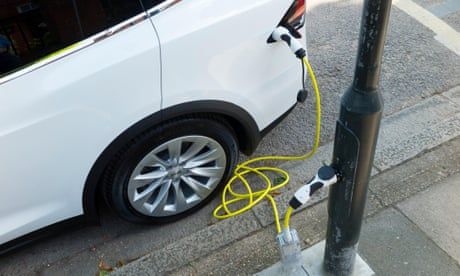
Ministers should be bold and radical in taking measures to boost demand in a key sector of the green transition
The resignation of the high-profile CEO of Stellantis, Carlos Tavares, was the latest sign of the ongoing crisis afflicting some of the world’s most famous carmakers, as they negotiate the historic transition to electric vehicles. Last month, Stellantis – the maker of Fiat, Vauxhall, Jeep and Peugeot cars – announced the closure of its Vauxhall van factory in Luton, in part blaming the impact of electric vehicles sales targets mandated by Westminster. Ford has announced it intends to cut 4,000 jobs across Europe, including 800 in Britain, citing sluggish growth in EV sales as a contributory factor.
For Labour, and for a sector crucial to the green transition, this is a crucial moment. The government has restored a 2030 cutoff point – kicked back to 2035 by Rishi Sunak – after which the sale of pure internal combustion engines will be banned. But car manufacturers are lobbying for a watering down of the terms of the zero‑emissions vehicles mandate (ZEV), which requires manufacturers to sell a rising proportion of EVs between now and then. Meanwhile, on the right, Kemi Badenoch’s Conservatives and Nigel Farage’s Reform UK seek to caricature the country’s net zero obligations as a virtue-signalling threat to prosperity and growth.
Continue reading...